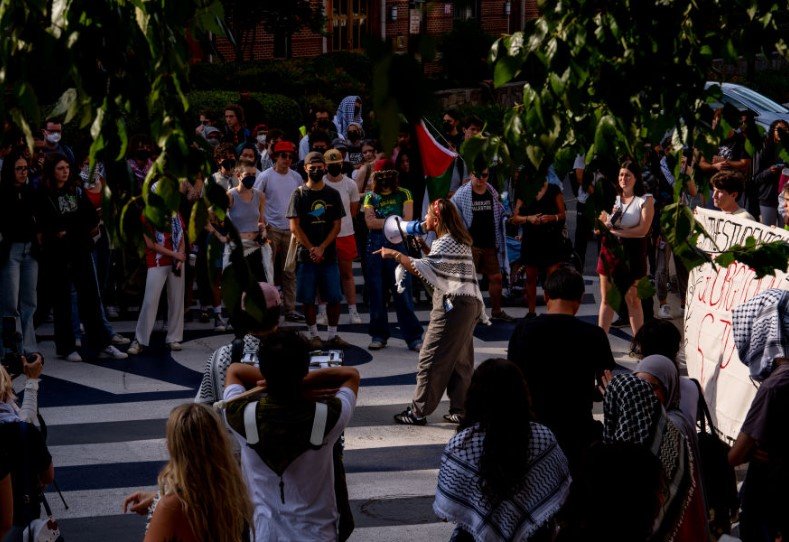A prominent Indian academic studying in the United States has found himself at the center of an international controversy after being detained by federal authorities over allegations of ties to Hamas and antisemitic activities. The arrest has ignited fierce debate, with his supporters calling the charges politically motivated.
Arrest Shakes Georgetown University Community
Badar Khan Suri, a postdoctoral fellow at Georgetown University, was arrested outside his home in Virginia on Monday night. The Department of Homeland Security (DHS) cited accusations of spreading antisemitic rhetoric and connections to Hamas, a group designated as a terrorist organization by the US. Suri, who specializes in peace and conflict studies, maintains his innocence.
Suri’s arrest has sent shockwaves through the Georgetown academic community, where he was teaching a course on “Majoritarianism and Minority Rights in South Asia.” Colleagues describe him as a dedicated scholar focused on conflict resolution and minority rights.
His wife, an American citizen of Palestinian descent, has been a key point of discussion in his legal team’s defense. Suri’s lawyer claims the government is targeting him because of his wife’s heritage, not his actions.

Rare Immigration Law Invoked
The Trump administration used a seldom-employed provision of US immigration law, granting the Secretary of State the power to expel non-citizens considered a threat to foreign policy. Secretary of State Marco Rubio determined Suri’s activities warranted deportation, according to DHS statements cited by Fox News.
- The law, used only a handful of times in recent decades, allows broad discretion in defining foreign policy threats.
- A similar case involved Mahmoud Khalil, a Columbia University student and green card holder, deported last year for leading pro-Palestinian demonstrations.
Suri’s lawyer argued the law is being misapplied, stating, “If an accomplished scholar who focuses on conflict resolution is deemed bad for foreign policy, maybe it’s the policy that’s the problem — not the scholar.”
Rising Tension on US Campuses
The incident comes amid a wider crackdown on foreign students allegedly involved in anti-Israel protests on US campuses. Just last week, Ranjani Srinivasan, another Indian student accused of antisemitic behavior, left the country voluntarily using the CBP Home App to avoid detention.
This climate of heightened scrutiny follows mass student demonstrations across American universities last year, which drew national attention — and controversy.
Suri, a former student of Jamia Millia Islamia in India, has no criminal record, according to his legal filing. His supporters argue that his arrest reflects an increasingly punitive environment for international students expressing controversial political views.
Whether Suri will be deported remains unclear, as he awaits his hearing in immigration court. For now, his future in the US hangs in the balance.
